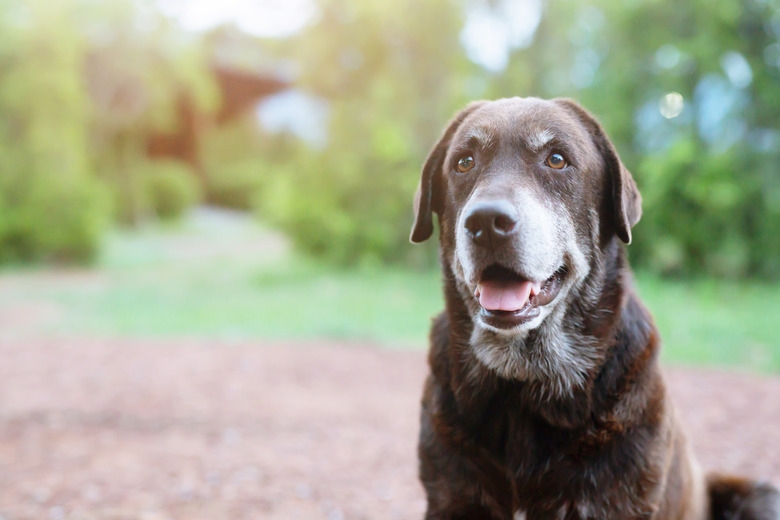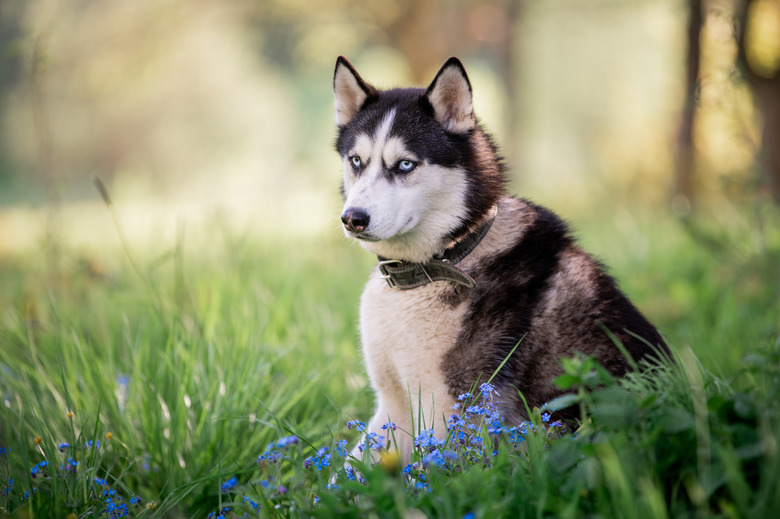Cloudy Eyes In Dogs: Causes, Treatment, And Veterinary Care
Cloudy Eyes In Dogs: Causes, Treatment, and Veterinary Care
A dog's eyes can be beautiful, soulful, and bright. One thing they shouldn't be is hazy. If you notice a cloudy spot on your dog's eye, bring them to the veterinarian as soon as possible. Causes of cloudy eyes in dogs can vary, so we spoke with Dr. Jordan Kautz, a veterinarian at Crestview Veterinary Clinic in Austin, Texas, to find out more. Some of the eye problems that cause the issue are serious, requiring immediate veterinary care from your vet or a veterinary ophthalmologist to stop further degeneration and potential permanent damage, such as vision loss.
Some dog breeds are more predisposed to certain eye conditions. For example, the way the surface of the eye presents in brachycephalic breeds, like pugs and bulldogs, means their corneas are more exposed. Age can also play a factor, with senior dogs' eyes more commonly affected by eye problems.
What is glaucoma in dogs?
What is glaucoma in dogs?
Glaucoma is a condition in which the fluids of your dog's eye cannot drain properly. Because of this, the pressure within the eye increases to a point that can cause damage, sometimes permanent damage, to the optic nerve or the retina. It can be primary glaucoma, which is an inherited condition, or secondary glaucoma, caused by something else.
"Glaucoma would cause a cloudy haze to effect the entire corneal surface," says Dr. Kautz. "The eye itself may also appear larger than the other eye ball. Glaucoma is a very painful condition if not treated quickly." Other symptoms of glaucoma include redness, appetite loss, lethargy, excessive blinking, and a dilated pupil in one or both eyes.
Only your vet can diagnose glaucoma by using special tools to measure the pressure in your pup's eye. Treatment for glaucoma may involve drug therapy, eye drops, or surgery to lower the pressure in the eye.
Lipid keratopathy in canines
Lipid keratopathy in canines
Lipid keratopathy, also known as corneal dystrophy, occurs when fatty substances accumulate in the cornea, causing a white spot on a dog's eye. This condition can occur for several reasons, with common causes including genetics, high cholesterol levels, and hypothyroidism. Symptoms include a white or gray spot on a dog's eye, usually near the center.
Your veterinarian can diagnose this condition through an eye exam, which is crucial in preventing potential vision loss or further degradation of health due to underlying medical conditions. Treatment usually involves feeding your dog a low-fat diet to lower their cholesterol levels or treating an underlying cause, such as hypothyroidism.
Cataracts in canines
Cataracts in canines
Cataracts occur when the lens of the eye becomes cloudy, usually due to age, genetics, diabetes, or a traumatic injury. If there's a cloudy spot on your dog's eye, they could have canine cataracts, which can cause vision loss.
Your vet will determine if your pup has cataracts using specialized optical equipment. They or a veterinary ophthalmologist can determine if the pup's lens is simply a hardening with age (common in older dogs and a cause of cloudy eyes). "This is known as nuclear sclerosis," says Dr. Kautz, or lenticular sclerosis, or if a cataract is present. The only treatment for cataracts is the surgical removal of the lens of the eye.
Uveitis in canines
Uveitis in canines
If your pup has a cloudy eye that is also red and tearing and they keep it shut, they may be suffering from an eye condition called uveitis. Your pup's uvea is made up of the iris, ciliary body, and choroid, all of which can become inflamed. Common causes of this inflammation include an underlying infection, systemic disease, or an injury to the eye.
Your vet can diagnose this condition by measuring the pressure in the eye. Treatment involves the use of eye drops or ointments to reduce the inflammation and eliminate any bacterial infections.
Doggy dry eye (Keratoconjunctivitis sicca)
Doggy dry eye (Keratoconjunctivitis sicca)
If your pup's eyes aren't producing enough tears, the eyes can become very dry. This opens the eye to infections or corneal ulceration. You may also notice they have cloudy eyes. Pups who blink a lot, have swollen eyes, have changes in the appearance of their corneas, or have discharge coming from their eyes may be suffering from dry eye.
Causes of this include a genetic predisposition, underlying illness, bacterial infection, or medication. Your vet can evaluate your pup's tear production and prescribe artificial tears to treat this condition or perform surgery to reroute the moisture from a salivary gland to their eyes.
Keratitis in dogs
Keratitis in dogs
The eye condition keratitis is the inflammation of the cornea, which can cause a cloudy spot on your dog's eye. Causes of a dog's cloudy eyes include bacteria, fungi, medication, and dry eye. Keratitis can lead to corneal ulcers and even vision loss.
Symptoms of keratitis as well as cloudy eyes include pawing at the eye, tearing, squinting, and a protruding third eyelid. Your vet will determine what type of treatment to use, such as prescription eye drops to control inflammation, surgery to remove the cornea, radiation treatment, or cryotherapy. These are all courses of action that will help to clear the condition and avoid outcomes like corneal ulcers.
The bottom line
The bottom line
A cloudy spot in your dog's eye should never be ignored. While some causes like nuclear sclerosis in older dogs are not serious, many conditions that create cloudy eyes can lead to vision loss or complete loss of a dog's vision. Make an appointment with your veterinarian (DVM) right away if you notice any haziness in your dog's eyes. With an exam and proper diagnosis, your vet can prescribe medication, eye drops, or surgery to clear up the cause and restore clear vision to your pup's beautiful eyes. Pet parents should act quickly when you spot trouble to give your dog the best chance of avoiding permanent damage for a lifetime of bright, healthy eyes.


